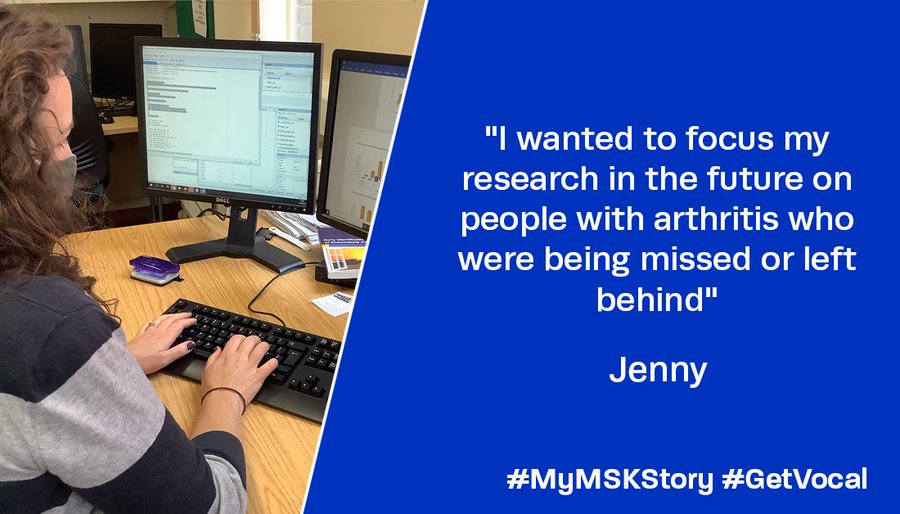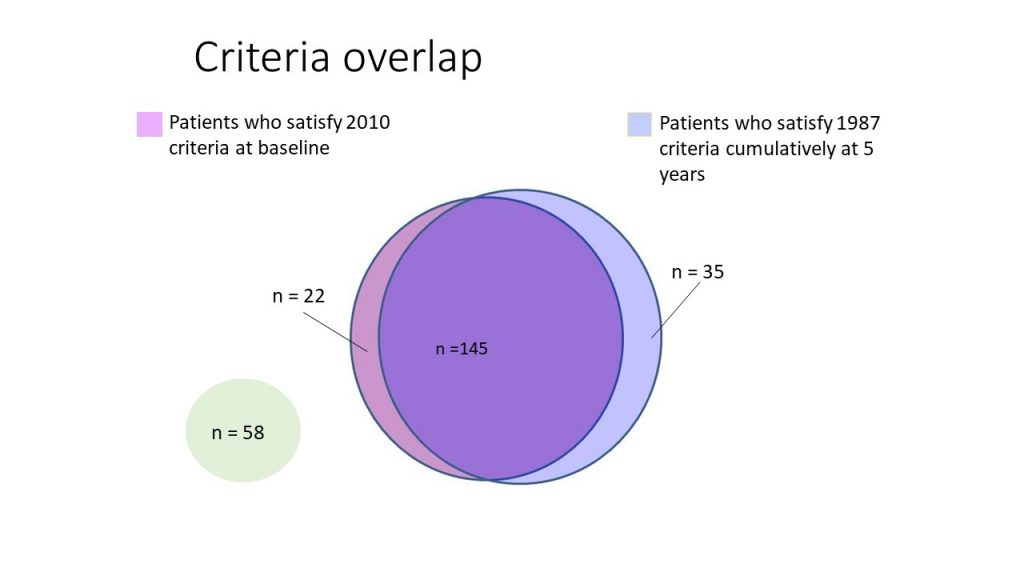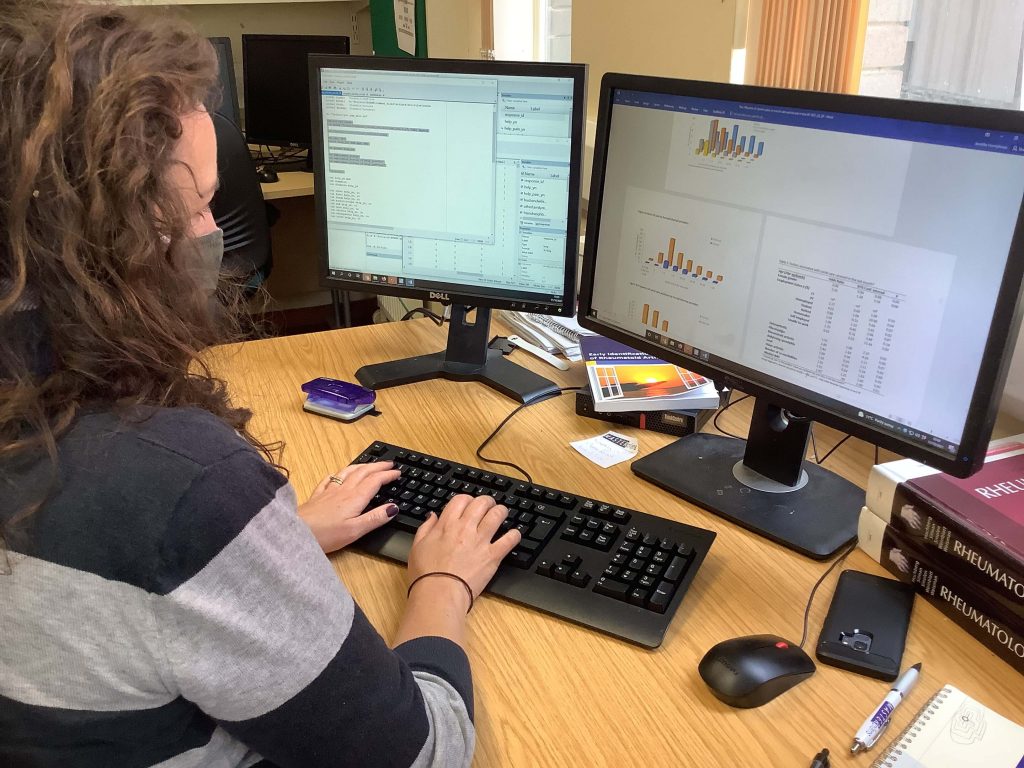
People, Not Numbers – #MyMSKStory
Our colleagues at Vocal have collaborated with people living with a musculoskeletal (MSK) condition and MSK researchers from the NIHR Manchester Biomedical Research Centre to share stories about physical movement, self-management, and research. Search #MyMSKStory on Facebook and Twitter or follow @letsgetvocal to find out more.
Here’s Dr Jenny Humphreys’ story:
I’ve always wanted to do research, even before I knew what kind of doctor I wanted to be. When I got a junior doctor role in rheumatology after qualifying, it seemed like the perfect fit; a specialty where I could get to know my patients over a long time and where there was a need to better address challenges in diagnosing and managing conditions. I realised that there was a lot of research taking place, trying to improve the lives of patients with musculoskeletal conditions.
During my PhD, I was preparing a graph of some results, grouping patients with different types of arthritis. I decided to use a Venn diagram to show people who met one set of criteria, another set or both. But there were patients, people, in the study who didn’t fit into either circle. They didn’t have the right blood test or x-ray results to meet either criteria. The moment I noticed the people outside the circle, really noticed them, was when it clicked. As I was putting the numbers in the diagram I realised those people wouldn’t be counted at all, because they didn’t fit into any of the boxes. I realised that I wanted to focus my research in the future on people with arthritis who were being missed or left out.

After this, I became more aware of the other ways that people might be left behind in arthritis research. As a postdoctoral researcher, I learnt more about the fact that much of health research often has a blind spot, because it doesn’t include people from a range of ethnic groups or social classes who are affected by the condition. For example, clinical trials from the United States may recruit as little as 13% non-white participants, despite them making up 30% of the population. As a consequence, results from many research studies in arthritis may not apply or be relevant to them.

It’s clear that some researchers have considered certain groups as ‘hard to reach’ for research but I believe we need to challenge these perceptions. We must change how we approach research to include them. Even a group not traditionally thought of as marginalised, children, are less likely to have appropriate research information on their diseases because they are considered more difficult and challenging to study. In my research I explore ways to address these challenges. One approach is to use information collected as part of routine care, such as GP records, to research arthritis. Although not perfect, this is a more inclusive approach because it does not depend on individuals volunteering to take part, which requires availability of time and money.
Some people might feel as a white, professional woman, it’s not my place to talk about these issues of discrimination and exclusion in research, because it has not been my lived experience. However, I believe that I should use my position of privilege and power to draw attention to the bias in research and medicine, whether it is due to poverty, race, class, age or any other reason. Taking part in this storytelling project, and hearing personal stories from such a diverse group of people, and then seeing them come to life with the images, has been the peak of this ambition for me, but there is more work to do, and more to come. Widening participation in research, bringing equality, diversity and genuine representation of our communities within MSK research has to be the focus for the future.

Interested in shaping research? Join Vocal’s friendly Musculoskeletal Research User Network and #GetVocal
Learn more about Dr Jennifer Humphreys and her research here.


0 Comments